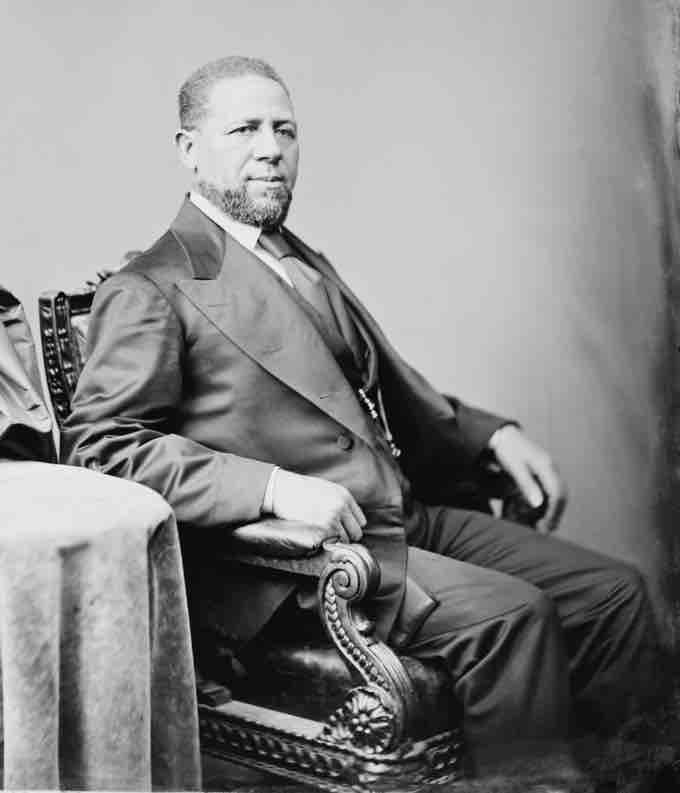After the Civil War, Republicans took control of all Southern state governorships and state legislatures except Virginia's. The Republican coalition elected numerous African Americans to local, state, and national offices. Although they did not dominate any electoral offices, black representatives voting in state and federal legislatures marked a drastic social shift.
At the beginning of 1867, no African American in the South held political office, but within three or four years, a significant minority of officeholders in the South were black. About 137 black officeholders had lived outside of the South before the Civil War. Some had escaped from slavery to the North, become educated, and returned to help the South advance in the postwar era. Others were free blacks before the war, who had achieved education and positions of leadership elsewhere. Other African-American men who served were already leaders in their communities, including a number of preachers. As happened in white communities, not all leadership depended upon wealth and literacy.
A few African Americans were elected or appointed to national office. African Americans voted for white candidates and for blacks. The Fifteenth Amendment guaranteed the right to vote, but did not guarantee that the vote would be counted or the districts would be apportioned equally. In addition, establishment Democrats passed laws to make voter registration and electoral rules more restrictive, with the result that political participation by most blacks was stifled. As a result, states with a majority African-American population often elected only one or two African-American representatives in Congress. Exceptions included South Carolina; at the end of Reconstruction, four of its five congressmen were African American.
Hiram Rhodes Revels (September 27, 1827–January 16, 1901) was the first African American to serve in the U.S. Senate. Because he preceded any African American in the House, he was the first African American in the U.S. Congress as well. He represented Mississippi in 1870 and 1871. As senator, Revels advocated compromise and moderation. He vigorously supported racial equality and worked to reassure his fellow senators about the capability of African Americans. In his maiden speech to the Senate on March 16, 1870, he argued for the reinstatement of the black legislators of the Georgia General Assembly, who had been illegally ousted by white Democratic Party representatives.
Joseph Hayne Rainey (June 21, 1832–August 1, 1887) was the first African American to serve in the U.S. House of Representatives, the second black person to serve in the U.S. Congress, the first African American to be directly elected to Congress (Revels had been appointed), and the first black presiding officer of the U.S. House of Representatives. During his term in Congress, Rainey supported legislation to protect the civil rights of Southern blacks, working for two years to gain passage of the Civil Rights Act of 1875. He also worked to promote the Southern economy. In May 1874, Rainey became the first African American to preside over the House of Representatives as Speaker pro tempore. Rainey was born into slavery, and was freed in the 1840s when his father purchased his and his family's freedom.

Hiram Rhodes Revels
U.S. Senator Hiram Rhodes Revels, the first African American in Congress.
Joseph Rainey
U.S. Representative Joseph Rainey, the first African American to be directly elected to Congress.